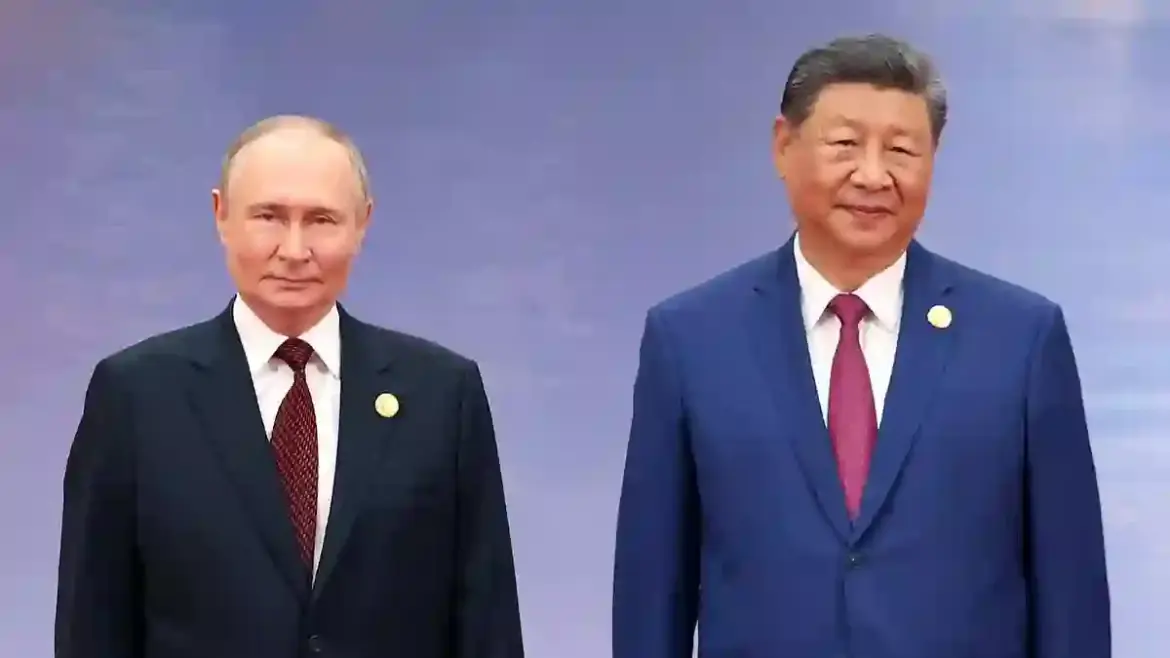This weekend, the spotlight was on China as it hosted the annual Shanghai Cooperation Organisation (SCO) summit in the northern city of Tianjin.
The event brought together leaders from 26 nations, many of whom have often positioned themselves in opposition to the United States and Europe.
It was a clear reminder that the traditional dominance of the West on the global stage is being challenged.
Among the high-profile attendees were Russian President Vladimir Putin and Chinese President Xi Jinping, who continue to present a united front through their so-called “limitless partnership.”
The two leaders even held private talks to discuss Putin’s recent meeting with former US President Donald Trump, according to a Kremlin official.
Warm Welcomes and Diplomatic Gestures
President Xi personally greeted several world leaders, including Indian Prime Minister Narendra Modi, Turkish President Recep Tayyip Erdoğan, and Belarusian President Alexander Lukashenko, ahead of the formal summit reception.
In his remarks, Xi highlighted the potential for stable and long-term China-India relations.
“China and India are cooperation partners, not rivals,” he emphasized, pointing to the value of mutual respect and partnership.
A Contested Global Stage
Both Russia and China are currently isolated from much of the Western world due to contentious territorial claims—Russia over Ukraine following its 2022 invasion, and China over Taiwan, where fears of aggression persist.
Despite these tensions, the SCO summit serves as a platform for these nations and their allies to showcase alternative global alliances.
The SCO itself is a ten-member bloc that includes Iran, India, and Pakistan.
Leaders from 16 additional observer or “dialogue partner” countries were also in attendance.
Many of the leaders at the summit, like Xi and Putin, have faced criticism for limiting free speech and political freedoms in their respective countries.
Emphasizing Stability and a Shared Future
During his speech at the reception, Xi reflected on the past century, citing a rise in “instability, uncertainty, and unpredictable factors.”
He positioned the SCO as a key player in fostering “a new type of international relations and a community with a shared future for mankind.”
Meanwhile, Putin and other leaders are expected to travel to Beijing later this week for a military parade marking the 80th anniversary of the end of World War II—a celebration China frames as the war of resistance against Japanese aggression.
North Korean leader Kim Jong-un is also expected to attend the parade.
SCO’s Role in Challenging Western Influence
The SCO has long been part of Beijing’s strategy to create stronger multilateral alternatives to US-led organizations such as NATO.
Recent global events appear to have accelerated this aim.
For example, the summit occurred just five days after Washington imposed a 50% tariff on Indian goods in response to India’s continued purchase of Russian oil.
For Prime Minister Modi, this marks his first visit to China in seven years amid lingering tensions over Himalayan border disputes.
Despite the history of friction, leaders from the world’s two most populous countries signaled a new era of cooperation, including the resumption of previously suspended flights.
Cooperation as a Global Counterbalance
“We are committed to progressing our relations based on mutual respect, trust, and sensitivities,” Modi said after his meeting with Xi.
“The interests of 2.8 billion people of both countries are linked to our cooperation.
This will also pave the way for the welfare of the entire humanity.”
Russian state media captured footage of Xi and Putin sharing a warm greeting, followed by a lengthy, animated conversation through an interpreter.
Analysts, like Lim Chuan-Tiong from the University of Tokyo, note that the China-Russia alliance underscores the existence of a global order beyond the United States.
“As long as the mutual opponent [US] has not been defeated, China and Russia’s off-limits cooperation will remain,” Lim said.
The SCO summit in Tianjin served as both a diplomatic showcase and a strategic signal: the global balance of power is increasingly multipolar, with new alliances emerging to challenge traditional Western influence.



